The 1970s Dodge Hornet stands as a testament to American Motors Corporation’s innovative approach to compact car design.
In an era that was, to say the least, dominated by muscle cars like the Ford Mustang and Chevrolet Camaro, the Hornet offered a unique blend of style, performance, and practicality.
With its striking looks, versatile body styles, and robust engineering, the Hornet AMC cars carved out a distinct niche in the automotive landscape – relatively affordable compact cars.
So, no matter if you’re a classic car fanatic or someone looking for an interesting vintage project car, here are five compelling reasons why the 1970 AMC Hornet deserves a spot in your garage.
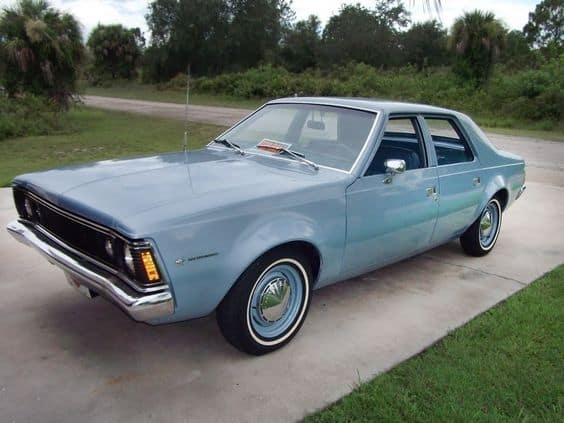
Source: barnfinds.com /Pinterest
Key Takeaway
- The 1970 AMC Hornet offered a unique blend of style, practicality, and performance, making it a standout in an era dominated by muscle cars.
- The Hornet came in various body styles, including two-door and four-door sedans, a station wagon (Sportabout), and a hatchback, catering to diverse customer needs and preferences.
- The Hornet featured various engine options, from economical six-cylinders to powerful V8s, providing fuel efficiency and thrilling performance for different driving styles.
- Compared to many classic cars, the Hornet was easier to maintain and more affordable, making it an attractive choice for vintage car enthusiasts seeking reliability and value.
A Hornet by Any Other Name: A History Lesson
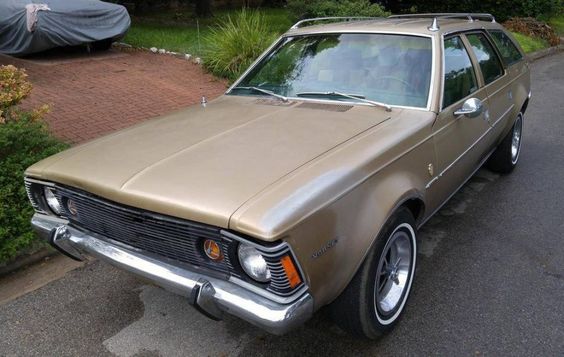
Source: hemmings.com/Pinterest
The “Hornet” nameplate has a rich and illustrious history that spans several decades. It embodies the spirit of innovation and performance in the automotive industry during the 1970s. To fully appreciate the 1970s AMC Hornet, it’s essential to understand the origins and evolution of this iconic name.
The Fabulous Hudson Hornet
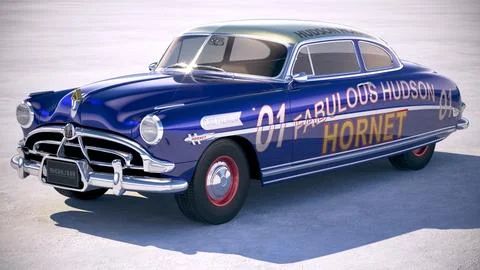
Source: pond5.com/Pinterest
The story begins in the early 1950s with the fabulous Hudson Hornet. Hudson Motor Car Company, based in Detroit and founded in 1909, introduced the Hornet in 1951. It quickly gained a reputation as one of the most advanced and powerful cars of its time.
The Hudson Hornet was notable for its “step-down” design, where the floor pan was placed below the level of the door sills. This design provided a lower center of gravity, which improved handling and stability—an innovative feature ahead of its time.
Oh, and let’s not forget the iconic closed-in rear wheels.
Under the hood, the Hudson Hornet packed a punch with its high-performance inline-six engine. Initially, it featured a 5.0-liter engine that produced 170 horsepower in any body style, which was considerable power for that era.
This engine made the Hornet a formidable competitor in stock car racing.
Its dominance in NASCAR cemented the Hornet’s prowess on the racetrack, where it earned the nickname “Fabulous Hudson Hornet.” Drivers like Marshall Teague and Herb Thomas drove the Hornet to numerous victories, making it a motorsport legend.
While modern cars have advanced in technology and luxury, the 1970 AMC Hornet remained a standout for enthusiasts who appreciate its classic charm and racing heritage. Unlike today’s luxury compact vehicles focusing on comfort and high-tech features, the 1970 AMC Hornet offers a raw, unfiltered driving experience connecting drivers to the golden era of American muscle cars.
Revival by American Motors Corporation (AMC)
By the mid-1950s, the automotive landscape was changing, and Hudson Motor Car Company merged with Nash-Kelvinator in 1954 to form American Motors Corporation (AMC).
The Hornet nameplate took a hiatus during this period as AMC focused on consolidating its lineup and developing new models.
Fast forward to the late 1960s, and AMC was looking to impact the compact car market significantly.
The company decided to revive the Hornet name, tapping into its rich heritage and recognition. In 1970, AMC introduced the new Hornet as a compact car designed to compete with the rising popularity of Japanese imports and domestic competitors like the Chevrolet Nova and Ford Maverick.
The 1970s AMC Hornet
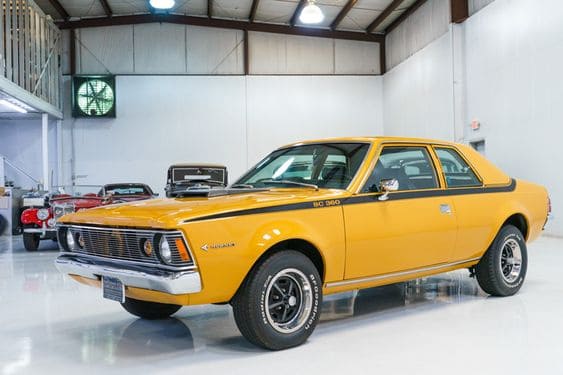
Source: schmitt.com/Pinterest
Let’s start by saying that the 1970 AMC Hornet marked a new chapter for the nameplate.
It positioned itself as a versatile and practical vehicle offering various body styles and engine options. This new iteration of the Hornet was designed to cater to a wide audience, from families needing a reliable car to individuals looking for a sporty car.
AMC offered the Hornet in several body styles, including:
- Two-Door Sedan: A sleek and sporty option for those who want a compact yet stylish car.
- Four-Door Sedan: A practical choice for families, offering more space and accessibility.
- Station Wagon (Hornet Sportabout): The Sportabout provides ample cargo space and versatility, making it perfect for those needing extra room for activities and travel.
- Hornet Hatchback: Combining the best of both worlds, the hatchback offered the practicality of a station wagon with a more compact and sporty appearance. It features fold-down rear seats for extra storage space.
This variety of body styles ensured that the Hornet could meet diverse needs and preferences, making it a popular choice among a broad range of customers. The four-door sedan configuration, in particular, offered practicality with its spacious interior and accessible rear window design.
The Rambler Hornet lineage carried forward the tradition of reliable, economical vehicles, and the 1970 AMC Hornet was no exception.
With available features like power steering, it provides a comfortable driving experience without sacrificing fuel economy. No matter whether you need a family car or a stylish commuter, the Hornet’s versatility and performance make this car a standout choice.
Engine Options and Performance
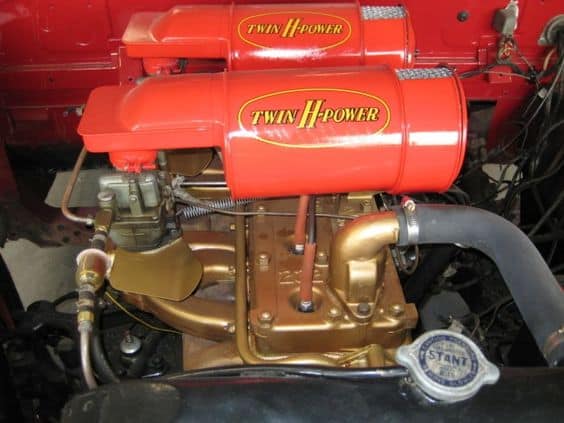
Source: blog.hemmings.com/Pinterest
Under the hood, the 1970s AMC Hornet platform offered a range of engines to suit different driving styles and requirements.
The base models featured economical six-cylinder engines that provided good fuel efficiency, making the Hornet an attractive option for those saving on gas. For drivers seeking more power, AMC offered V8 engines, including the high-performance Hornet SC, which delivered impressive performance and a thrilling driving experience.
The Hornet’s balanced design and compact size contributed to its excellent handling and responsive driving dynamics.
The Hornet provided a satisfying driving experience that appealed to enthusiasts and everyday drivers.
Pop Culture Significance
The 1970 AMC Hornet also enjoyed some pop culture fame.
It appeared in the James Bond movie “The Man with the Golden Gun,” where it performed an impressive barrel-roll stunt. This cinematic moment added an extra layer of coolness to the Hornet’s legacy, and from that point on, the car had a place in film history.
AMC Gremlin also starred in one of the best Johnny Depp movies, “Blow,” where he plays the role of infamous American drug trafficker George Jung.
5 Reasons to Own a 1970s AMC Hornet
Now that you’re well-versed in the Dodge Hornet’s history, let’s find out why you should park one of these beauties in your garage.
Reason 1: Stand Out from the Crowd
The 1970 AMC Hornet distinguishes itself with its unique design.
While cars like the Ford Mustang, Chevrolet Nova, and Chevrolet Camaro focused on aggressive, sporty aesthetics, and the Ford Maverick and Rambler American catered to practical sensibilities, the Hornet struck a balance with its distinctive appearance.
The clean lines, compact size, and iconic grille set this model apart from its equally famous contemporaries. Whether you choose the 2-door sedan, 4-door sedan, or sporty hatchback, the Hornet’s design exudes a timeless charm that continues to turn heads.
The legacy carried forward even with the 1977 AMC Hornet, which maintained its standout appeal in the automotive world.
Reason 2: Versatility Defined
One of the most appealing aspects of the 1970 AMC Hornet is its versatility. Unlike many of its competitors, the Hornet was available in a variety of body styles to suit different needs and preferences.
- 2-Door and 4-Door Sedans: Ideal for those who want a stylish yet practical car for daily driving.
- Station Wagon: This version, known as the Hornet Sportabout, offered ample cargo space, making it perfect for families and outdoor enthusiasts.
- Hatchback: The hatchback version combines a station wagon’s practicality with a compact car’s sporty appeal, providing flexibility and style.
This range of body styles means there’s a Hornet for everyone, whether you need a family car, a stylish commuter, or a vehicle that can handle a variety of cargo.
Reason 3: Pack a Punch Under the Hood
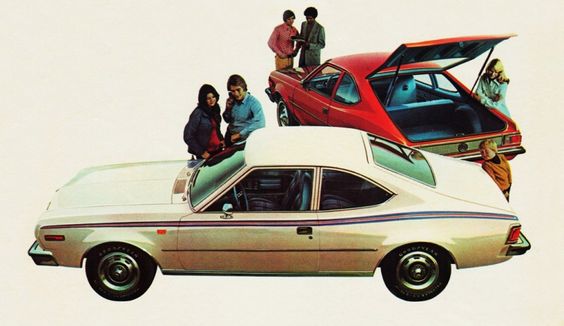
Source: hatchheaven.com/Pinterest
Despite being a compact car, the 1970 AMC Hornet did not compromise on performance. It offered a range of engine options to cater to different driving preferences and needs:
- Six-Cylinder Engines: Known for their reliability and fuel efficiency, these engines made the Hornet an economical choice for daily driving.
- V8 Engines: For those seeking more power, the Hornet SC (Super Coupe) featured a robust V8 engine that delivered an impressive performance, rivaling many era muscle cars.
The Hornet’s performance credentials were further bolstered by its success in motorsport. The car’s balanced design and powerful engine options made it a favorite in stock car racing, cementing its reputation as a performance-oriented vehicle.
Reason 4: A Fun and Engaging Drive
Driving a 1970 AMC Hornet was a highly rewarding experience – that’s for sure.
Its compact size and well-balanced design contribute to responsive handling and a fun driving dynamic. The availability of manual transmissions allows for a more connected and engaging driving feel, appealing to enthusiasts who appreciate the tactile pleasure of shifting gears themselves.
The Hornet’s compact dimensions and nimble handling make it a joy to drive on winding roads, while its comfortable interior ensures a pleasant experience during longer journeys. Whether navigating city streets or enjoying a scenic drive, the Hornet delivers an engaging and enjoyable driving experience.
Reason 5: Easy to Maintain and Affordable to Own
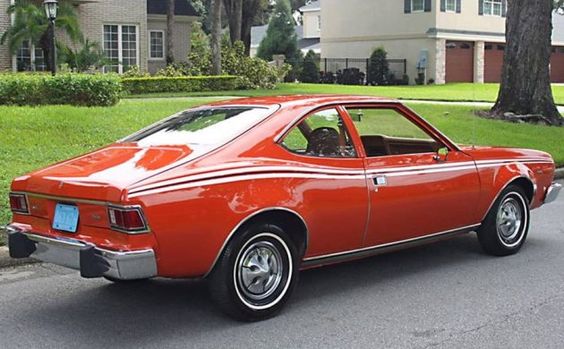
Source: barnfinds.com/Pinterest
One of the standout benefits of owning a 1970 AMC Hornet is its reputation for reliability and ease of maintenance.
Compared to many classic muscle cars, the Hornet is relatively simple and straightforward to work on. Parts are generally more affordable and easier to find, making this piece a practical choice for those who want to enjoy the classic car experience without the associated high costs.
Also, the Hornet is also an affordable classic car to own – which is a win-win situation!
While muscle cars from the same era can command high prices, the Hornet often offers a more budget-friendly entry point into the world of classic cars.
Some Additional Considerations You Should Take Into Account When Buying 1970s Dodge Hornet
When considering a 1970 AMC Hornet, there are a couple of additional factors to keep in mind to ensure you find a model that suits your needs and preferences:
- Condition: Look for a Hornet that is in nice condition, as this will reduce the work needed to get it road-ready and reliable.
- Model Year and Trim Level: The 1970 model year is particularly desirable due to its classic design and performance options. Different trim levels, such as the Hornet SC, offer various features and enhancements.
- Standard and Optional Equipment: Be aware of the standard equipment that comes with the model you’re interested in, and check for any optional equipment that might enhance your ownership experience.
Conclusion
Let’s look at what we’ve learned about the legendary AMC Hornet.
The 1970 AMC Hornet delivers an enticing mix of style, performance, and practicality. This blend makes it a standout in the realm of classic cars.
Featuring unique design elements, versatile body styles, rear suicide doors, and impressive engine options, this model offers an engaging driving experience and affordability. Despite being from an era when car sales fell, and economy cars were gaining popularity, the Hornet still managed to carve out its niche with the iconic “Green Hornet” variant and the classic four-door sedan configuration.
So, vintage car enthusiasts, if you seek a car that melds vintage charm with modern-day usability, the 1970 AMC Hornet is an excellent choice.
Add this iconic vehicle to your collection and relish its many benefits. After all, why settle for ordinary when you can drive a legend?
